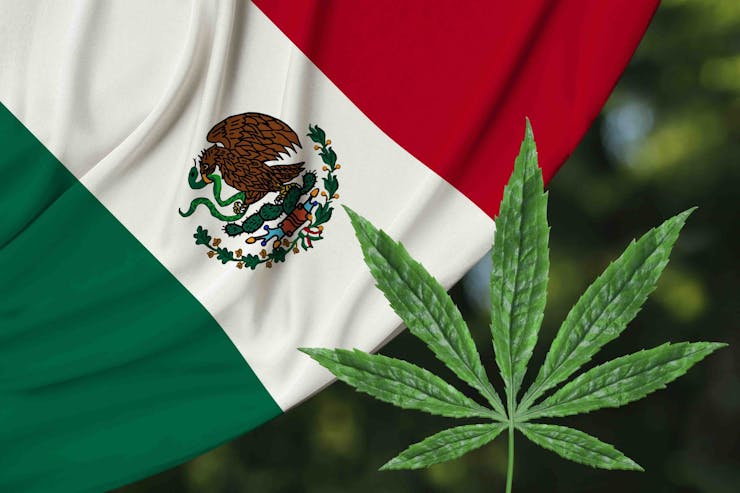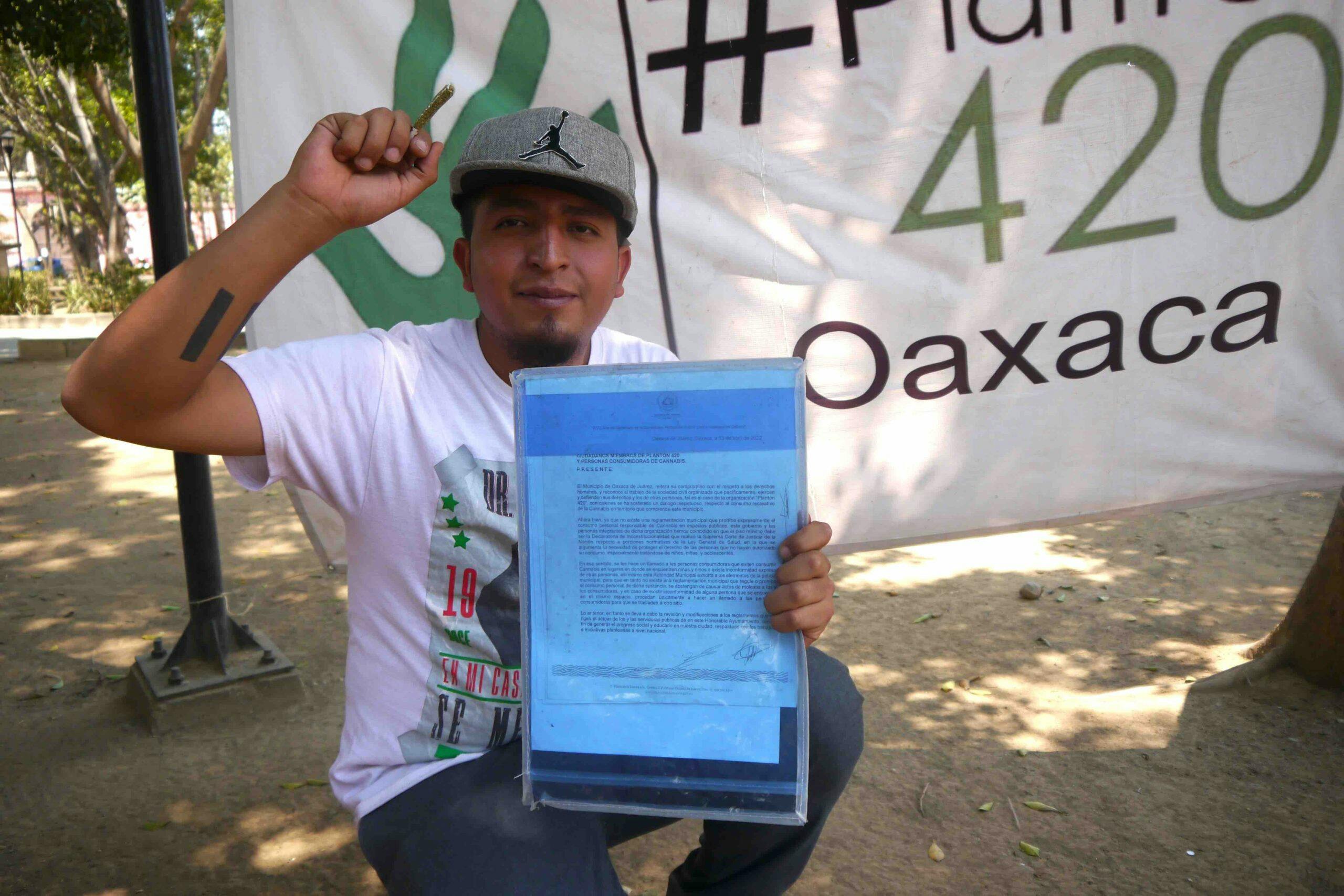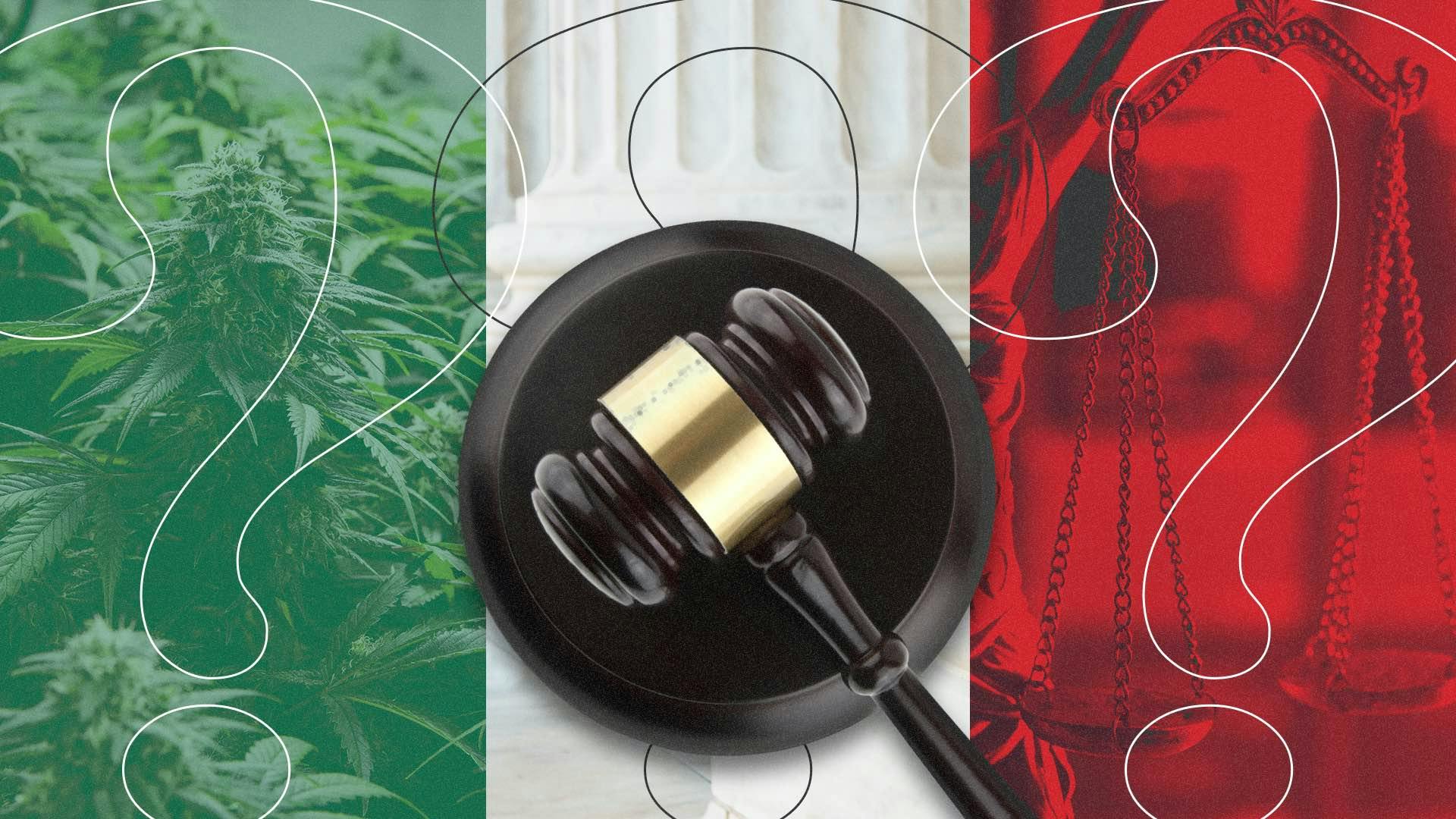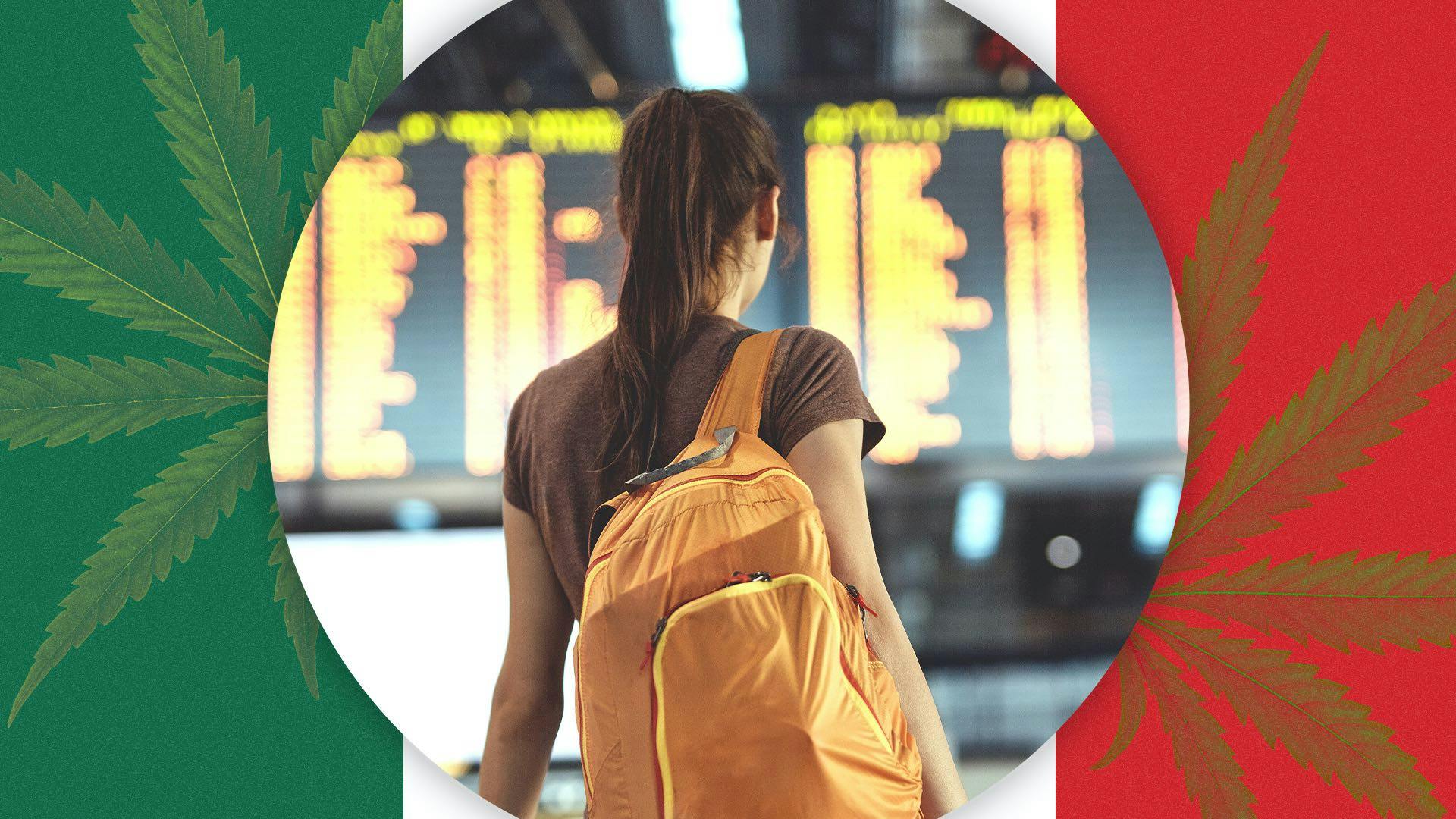Legal limits on the amount of cannabis that can be possessed for personal use in Mexico are unconstitutional, the country’s supreme court ruled in a decision handed down on Wednesday. It’s the latest in a series of judgements striking down marijuana prohibition, dating back to 2015.
Wednesday’s decision does not in practice immediately reduce the risk of arrest or harassment by police for cannabis consumers. (See this Leafly article for why that’s the case.) It comes after the court last year ruled that prohibitions on personal consumption and home cultivation were unconstitutional.
But that earlier ruling did not affect the 5 gram decriminalized limit for possession that had been in place since 2009, with those in possession of amounts greater risking a potential jail term of up to three years.
“The fact that the public ministry is allowed to take criminal action against a person who possesses more than 5 grams of cannabis for personal consumption is actually punishing moral qualities [and] personal behavior; which has no constitutional support,” Supreme Court Judge Juan Luis González Alcántara wrote.
“The criminal prosecution of the person who possesses cannabis within their sphere of privacy is not justified, without affecting third parties or causing any criminal result,” he added.
More pressure on Congress to legalize
While the ruling will only immediately benefit the plaintiff—Édgar “N”, who was arrested in 2018 with 30 grams—it sets another important precedent codifying the rights of cannabis consumers via case law. It demonstrates again how the judicial branch is marching legislators into legalization, even as lawmakers drag their feet on the issue.
The high court’s past rulings have made it clear that cannabis prohibition is unconstitutional, but Mexico’s Congress has yet to pass a new law establishing the plant’s full legality. This has left millions of cannabis consumers in a legal limbo.
A negative outcome hidden in the case
The outcome in this week’s case left legalization advocates bitterly disappointed. The justices ruled that only judges or prosecutors—not police—can determine whether or not any amount of cannabis is for personal use. Thus, there remains the possibility officers can arrest smokers and force them to spend up to 48 hours in a public prosecutor’s office, while awaiting a determination from a prosecutor or judge.
“With this result, the project is approved but does not generate a mandatory precedent for the rest of the cases. Only in this case, a collegiate court will have to decide whether the accused person possessed cannabis for personal use or not,” tweeted Mexico United Against Crime, a legal NGO whose team defended the plaintiff.
“We are sorry that the Supreme Court has approved this. It is contradictory that despite the bill having all the arguments to put an end to this crime, the Court chooses to perpetuate the criminalization of consumers. We will continue working to protect the rights of consumers and citizens. We are sure that a safer and more peaceful Mexico needs the decriminalization of drugs.”
Possession still can get you arrested
Although the right to consume cannabis has been recognized by the Court as constitutional, the organization lamented how the ruling fell short of eliminating the crime of simple cannabis possession.
Shop highly rated dispensaries near you
Showing you dispensaries nearThe judgment comes after Oaxaca city council last month ordered police to stop harassing and arresting public marijuana smokers. It issued a statement of city policy which gave pachecos the freedom to smoke in the streets of the culinary capital so long as they behaved respectfully.
Lawmakers slow to move on the issue
In the last six months, Mexican lawmakers have circulated new draft versions of a bill to legalize cannabis but it has not been reintroduced officially to the Congress of the Union. Senate Majority Leader Ricardo Monreal, from the ruling Morena party, said in November that a constitutionally sound, “high-level, progressive” cannabis bill would soon be completed by the Senate’s health and justice committees.
But shortly after, he suggested that officials redrafting a previous version were not able to prepare it in time in a form that would be likely to pass. “Well, [cannabis] prohibition is a hundred years old, so what if it’s a few months more,” he said when asked about the postponement.
The delays may reflect high level political expediency. President Andres Manual Lopez Obrador floated the idea of a national referendum on cannabis legalization last year but recently he said there was no consensus of the legalization of drugs, including cannabis.
“Overcoming the formalistic obstacles of the past is not an easy task, but I have full confidence that in this legislature we can achieve it,” said House of Deputies president Olga Sánchez Cordero in late March.







